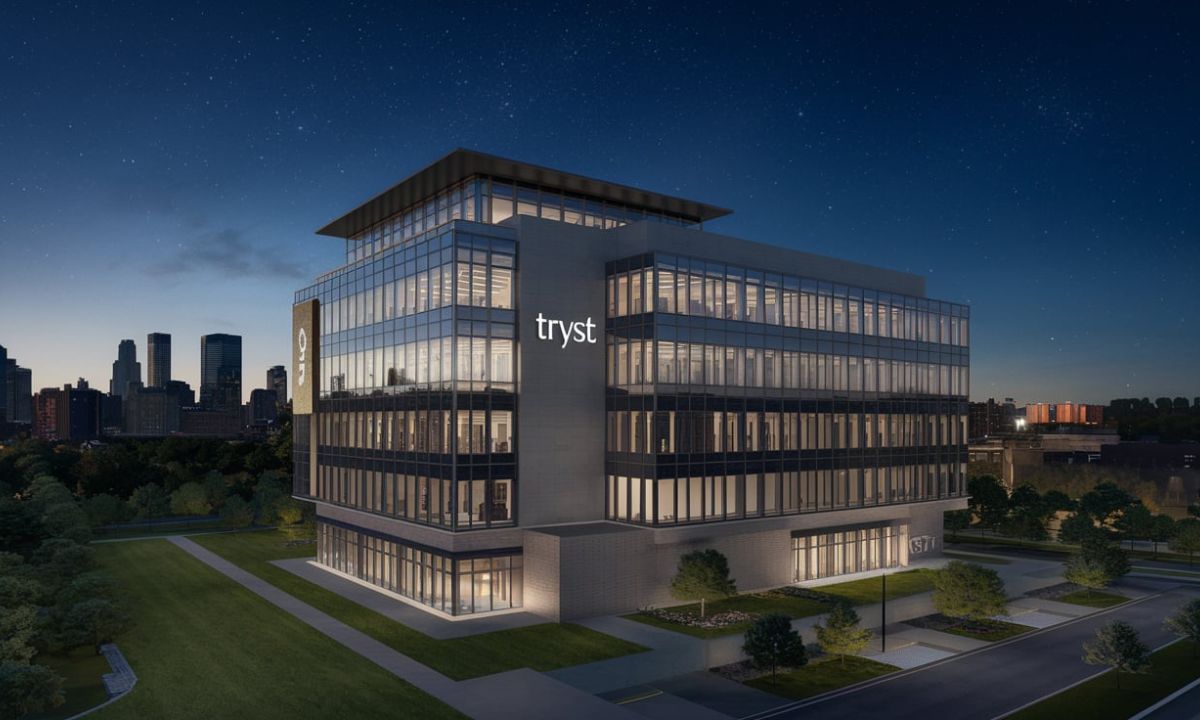Introduction: jones church loans
jones church loans Have you ever wondered how churches fund their community projects, building renovations, or expansion efforts? While traditional loans might seem like the go-to solution, churches face unique challenges in obtaining financing. They often rely on donations, and their income can fluctuate, making it difficult to qualify for standard bank loans. This is where Jones Church Loans comes into play—a lender specializing in faith-based financing designed to support churches with tailored financial solutions.
In this guide, we’ll explore everything you need to know about Jones Church Loans, from understanding the basics to navigating the application process. If you’re a church leader or a part of a faith-based organization looking to fund a mission, expand a facility, or improve your church’s financial health, this guide is for you.
Section 1: Understanding Jones Church Loans
1.1 What Are Jones Church Loans?
Jones Church Loans is a specialized lender that provides faith-based organizations, particularly churches, with loans designed to meet their unique financial needs. Unlike traditional financial institutions, Jones Church Loans understands the specific financial landscape of churches and structures loan products that reflect their needs.
Churches rely heavily on donations and offerings, which can make regular loan repayments challenging without the right kind of financing plan. Jones Church Loans focuses on this sector and offers terms that are more flexible, understanding, and tailored for churches. This not only makes it easier for churches to qualify but also ensures they can manage the debt sustainably over time.
Jones Church Loans also provides a variety of products—from construction loans to refinancing options—allowing churches to choose the best fit for their mission. With this approach, Jones Church Loans bridges the gap between traditional lending requirements and the specific needs of churches.
1.2 How Jones Church Loans Differ from Traditional Loans
Traditional loans are typically designed for businesses or individuals with a consistent income stream, and they come with stringent qualification criteria. For churches, meeting these criteria can be a struggle due to fluctuating income from donations and offerings, which may vary throughout the year.
Jones Church Loans, however, offers flexible terms that accommodate irregular cash flow. They understand the ebb and flow of church finances, making it easier for faith-based organizations to meet their loan obligations. Moreover, Jones Church Loans considers a church’s impact on the community as part of the evaluation process, not just its financial history. This perspective allows Jones Church Loans to serve churches better, providing loans that support their growth without imposing unnecessary financial burdens.
1.3 Why Choose Jones Church Loans?
One of the biggest advantages of working with Jones Church Loans is the personalized approach they offer. The loan officers at Jones Church Loans are trained to work specifically with faith-based organizations, providing guidance and support throughout the loan process. This expertise can be invaluable for churches that may not have experience in financial management.
Additionally, Jones Church Loans provides more than just financing; they offer advice and support tailored to faith-based needs. With their understanding of church budgets and reliance on donations, Jones Church Loans helps ensure churches can maintain their missions without sacrificing financial stability.
Section 2: Types of Loans Offered by Jones Church Loans

2.1 Building and Renovation Loans
Many churches seek loans to expand or renovate their existing facilities. Whether it’s adding a community hall, expanding the worship area, or renovating the old structure, building and renovation loans are essential for growing churches. Jones Church Loans provides these loans with terms that accommodate the long-term nature of construction projects, offering flexible repayment schedules.
These loans are structured to cover the high initial costs of construction while allowing the church time to complete the project without immediate financial strain. With a building or renovation loan from Jones, churches can focus on completing their projects to benefit the community without having to worry about cash flow issues right away.
2.2 Refinancing Options for Existing Loans
For churches with existing loans, refinancing may be an effective way to reduce monthly payments or adjust loan terms to better fit current financial circumstances. Jones Church Loans offers refinancing options designed specifically for churches, often with lower interest rates or longer repayment terms.
Refinancing with Jones Church Loans can help churches manage their debt more effectively, freeing up funds that can be redirected to ministry and community programs. This option is particularly beneficial for churches that may have taken out high-interest loans or loans with strict repayment terms that no longer align with their financial health.
2.3 Equipment and Operational Loans
Beyond building projects, churches often need funds for operational expenses or to purchase essential equipment. This could include sound systems, seating, computers, or even vehicles for ministry work. Jones Church Loans offers specialized loans for these needs, providing quick access to funds without the need for collateral that traditional loans might require.
Equipment and operational loans are designed to cover both short-term and long-term needs, making them ideal for churches that need immediate resources but want to avoid high-interest credit options. This financing can help churches enhance their services, reach more people, and improve their overall function without dipping into reserve funds.
Section 3: Application Process for Jones Church Loans
3.1 Preparing for the Loan Application
Applying for a loan with Jones Church Loans starts with preparation. The church leadership should gather financial records, including recent budgets, income statements, and any records of donations. Having these documents ready will streamline the application process and make it easier to demonstrate the church’s financial position.
Jones Church Loans may also look at the church’s community impact, so it’s helpful to prepare information on the church’s mission, membership size, and the programs it runs. By illustrating how the loan will benefit the community, churches can improve their chances of loan approval.
3.2 Key Steps in the Application Process
The application process with Jones Church Loans is straightforward but requires attention to detail. It typically involves completing a formal application, submitting financial records, and meeting with a loan officer who will guide the church through the process. The loan officer will likely conduct an interview to understand the church’s needs and financial situation better.
Once the application is submitted, Jones Church Loans reviews the documents and assesses the loan request. This process is typically quicker than traditional banks, as Jones Church Loans is familiar with the needs of faith-based organizations and has streamlined procedures for churches.
3.3 Approval and Disbursement of Funds
After the application is approved, Jones Church Loans will provide a detailed loan offer that outlines the terms, interest rates, and repayment schedule. Churches can review this offer and work with the loan officer to address any questions or concerns. Once the terms are accepted, the funds are disbursed promptly, allowing churches to begin their projects or address their needs without delay.
Section 4: Managing Loan Repayments and Financial Planning
4.1 Creating a Financial Plan for Loan Repayment
One of the biggest challenges for churches is managing loan repayments while balancing ministry needs. Jones Church Loans encourages churches to develop a financial plan that prioritizes loan repayment without sacrificing essential programs or services. This may involve setting up a designated fund for loan payments, seeking additional donations, or reallocating resources.
Having a financial plan ensures the church remains in good standing with its loan obligations, and it also helps demonstrate financial responsibility to the congregation. This can foster trust and support for the loan, as members see a clear path toward repaying the debt.
4.2 Engaging Congregation Support for Repayment
Engaging the congregation in fundraising efforts can also be a vital part of loan repayment. Many church members are eager to support growth efforts, especially when they can see the positive impact on their community. By sharing the church’s goals and the need for financial support, church leaders can foster a sense of ownership among congregants, leading to increased donations or volunteer-led fundraising events.
Jones Church Loans often provides resources and guidance on involving the congregation, making it easier for church leaders to communicate the importance of financial contributions toward loan repayment.
4.3 Adjusting the Loan Terms if Needed
Jones Church Loans offers flexible repayment options, so if the church experiences financial difficulties, there may be options to adjust the repayment schedule. This flexibility can be a lifeline for churches facing unexpected financial challenges, ensuring they can continue to meet their obligations without compromising their ministry work.
If your church encounters financial difficulties, it’s important to communicate with your loan officer as soon as possible. Jones Church Loans prides itself on its commitment to faith-based organizations, and it may work with churches to find solutions that maintain financial stability.
Section 5: Benefits and Potential Challenges of Jones Church Loans
5.1 Advantages of Working with Jones Church Loans
The primary advantage of is the understanding and expertise they bring to church financing. Unlike traditional lenders, appreciates the unique financial landscape of churches and provides products that cater specifically to their needs. The flexible terms, competitive interest rates, and dedicated support make a preferred choice for many faith-based organizations.
Additionally, offers a sense of partnership, viewing each church as more than just a borrower. This relational approach allows churches to focus on their missions, knowing they have a lender that understands their goals.
5.2 Possible Drawbacks to Consider
While there are many advantages, it’s essential to consider potential drawbacks. For some churches, the idea of taking on debt, even with favorable terms, can be a source of concern. Additionally, some smaller churches may still find the application process challenging if they lack organized financial records.
requires a level of financial transparency and accountability that some churches may find demanding. However, the benefits of structured financial support often outweigh these challenges, particularly for churches with clear growth plans.
5.3 How to Evaluate if Jones Church Loans is Right for Your Church
Ultimately, every church needs to




